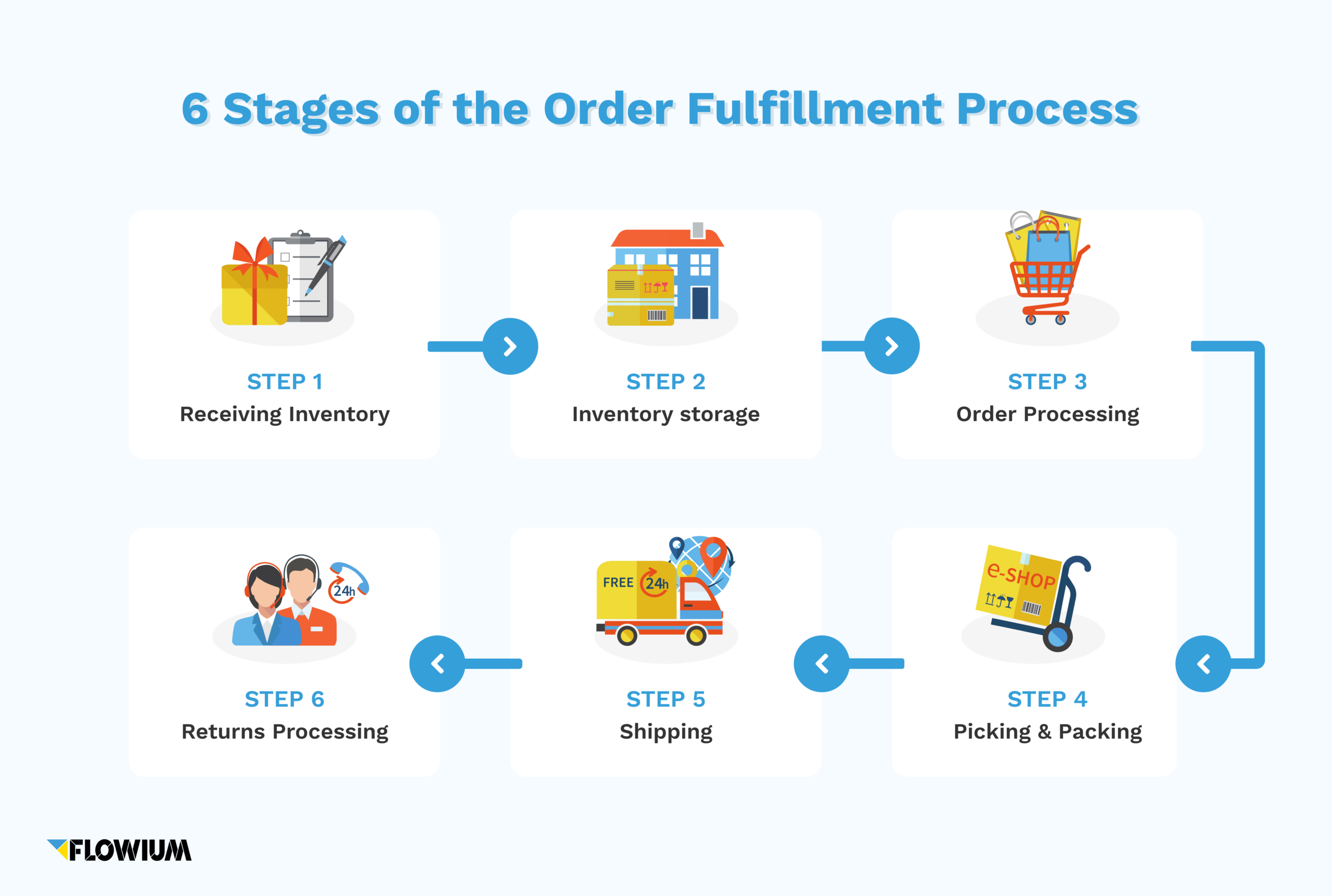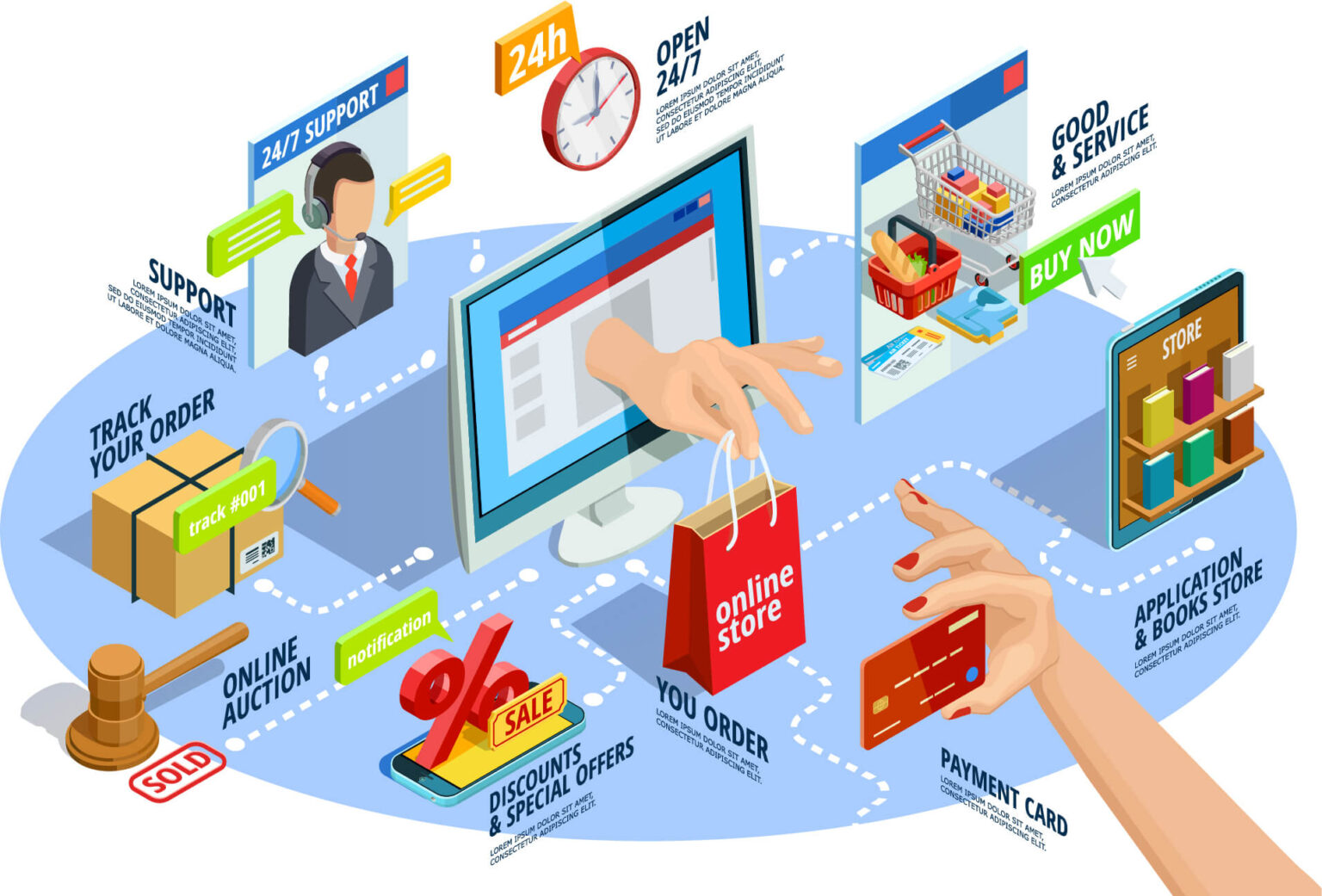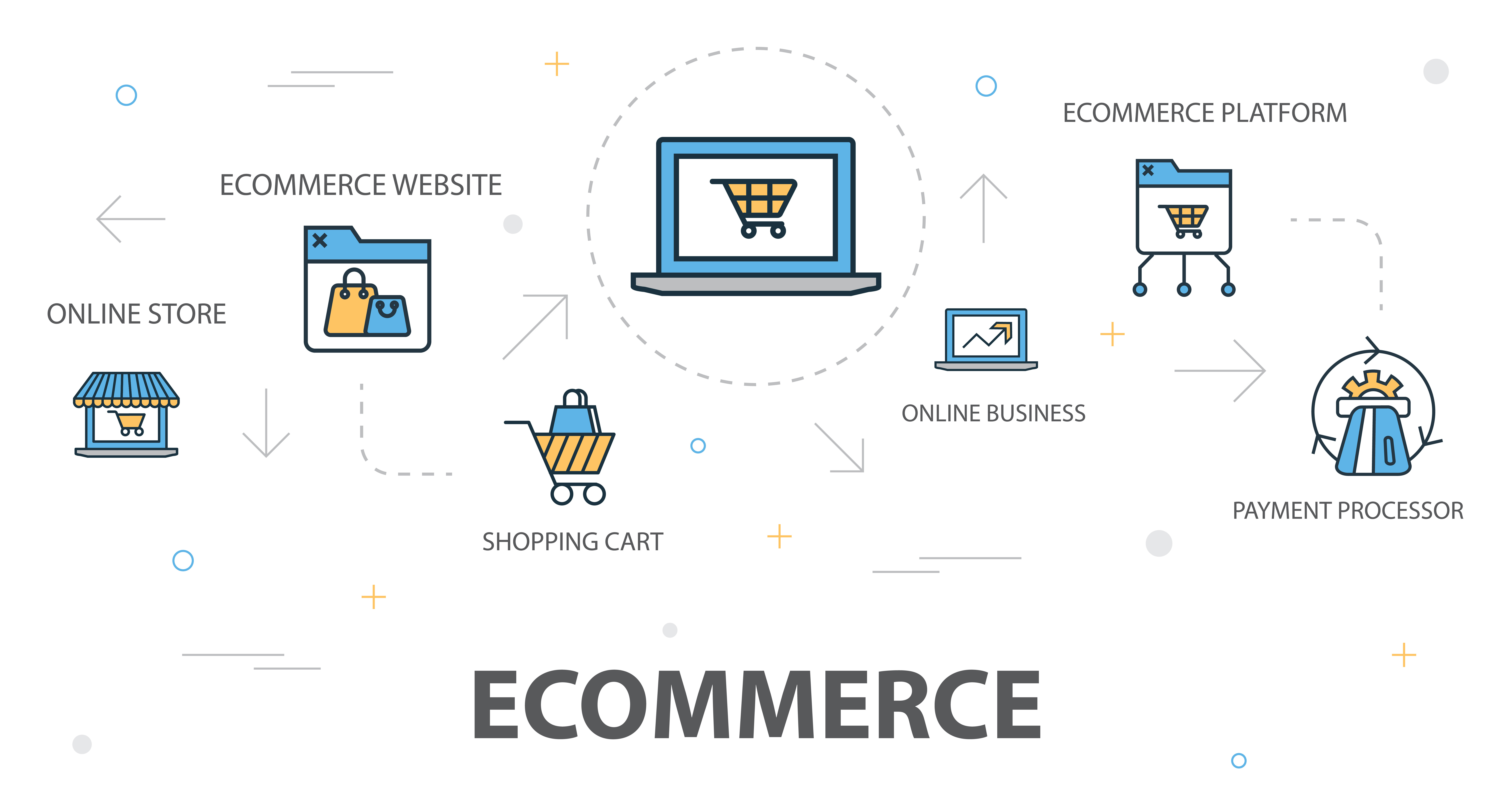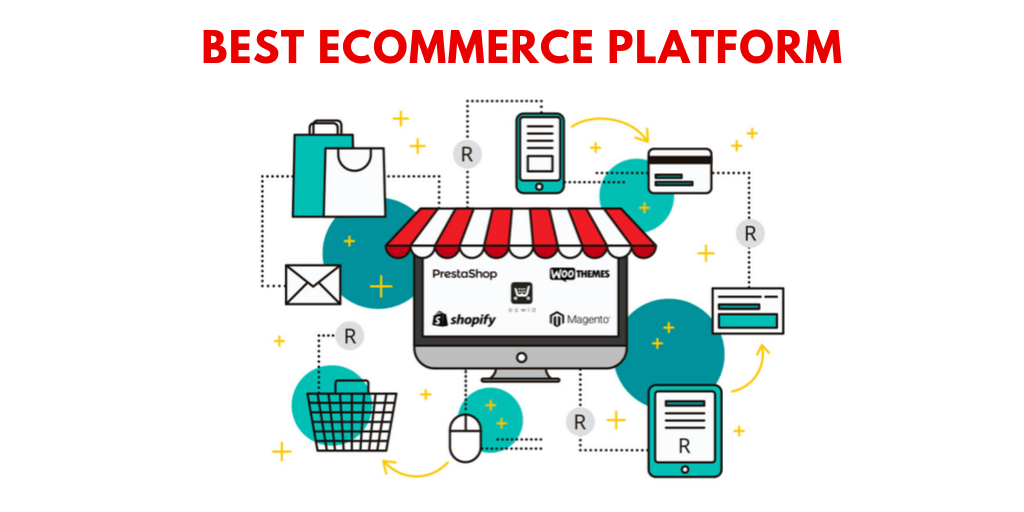Are you looking to launch your online business but unsure about which e-commerce platform to choose? In this comprehensive guide on e-commerce platforms, we will delve into the various types available, including online marketplaces, DTC platforms, subscription box platforms, and social media e-commerce platforms. Whether you’re a small business owner or an aspiring entrepreneur, understanding the differences between these platforms and knowing how to optimize them can make a significant impact on your online success.
From multinational corporations to independent sellers, the choice of e-commerce platforms plays a critical role in the success of any online business. With the digital landscape continuously evolving, selecting the right platform becomes more crucial than ever. Join us as we explore the essential features, benefits, and optimization tips for these diverse e-commerce platforms, empowering you to make informed decisions that align with your business goals and target audience. Let’s navigate the world of E-commerce platforms together!

Exploring the Diversity of E-commerce Platforms
Online Marketplaces
Online marketplaces like Amazon and eBay act as virtual shopping malls, bringing together a myriad of sellers and buyers. They provide a vast array of products, ensuring convenience and variety for shoppers. As a seller, leveraging these platforms offers immense exposure to a broad customer base, simplifying logistics and payment processing.
Direct-to-Consumer (DTC) Platforms
Platforms like Shopify and WooCommerce empower businesses to establish a direct connection with their customers, bypassing intermediaries. This direct approach fosters brand loyalty and allows for personalized customer experiences. DTC platforms offer flexibility in design and functionality, catering to varying business sizes and needs effectively.
Subscription Box Platforms
Subscription box platforms, exemplified by Birchbox and Ipsy, offer curated boxes of products delivered at regular intervals. These platforms capitalize on the element of surprise and discovery, enhancing customer engagement and retention. For businesses, subscription models ensure recurring revenue streams and foster long-term relationships with subscribers.
Social Media E-commerce Platforms
Social media e-commerce platforms such as Facebook and Instagram bridge the gap between social interactions and online shopping. By integrating shopping functionalities seamlessly into social media channels, businesses can reach audiences in a more interactive and engaging manner. Leveraging social platforms for e-commerce expands customer reach and facilitates direct communication with potential buyers.
Incorporating a mix of these e-commerce platforms into your online business strategy can amplify your market presence, engage customers in diverse ways, and drive sales growth. Understanding the distinctive features and benefits of each type enables you to tailor your approach for optimal results, catering to your business objectives and target audience. The dynamic e-commerce landscape offers plentiful opportunities for growth and innovation through strategic platform selection.

Choosing the Right E-commerce Platform
Understanding Your Business Needs
Before selecting an e-commerce platform, analyze your business model, product type, and target audience. Tailoring the platform to your specific requirements ensures seamless operations and customer satisfaction.
Examining Features and Capabilities
Delve into the platform’s feature set. Assess critical aspects like payment processing systems, inventory management tools, and built-in marketing functionalities. Choosing a platform with robust capabilities can streamline your operations and enhance user experience.
Analyzing Cost Structures
Scrutinize the platform’s cost structure meticulously. Consider subscription fees, transaction charges, and additional expenses. Finding a balance between cost and features is crucial for long-term profitability.
Seeking Feedback Through Reviews
Research user reviews and testimonials from businesses utilizing the platform. Real-world experiences can provide valuable insights into the platform’s performance, reliability, and customer support. Making an informed decision based on peer feedback can lead to a more successful e-commerce venture.

Essential Features of an E-commerce Platform
Product Management
Efficient product management is pivotal for online success. It involves seamless product addition, editing, and maintenance. Opt for platforms offering easy-to-use interfaces for uploading images, updating descriptions, and setting prices. Robust product management tools streamline the process, enhancing customer experience.
Payment Processing
Reliable payment gateways ensure secure transactions. Look for platforms that support various payment methods, offering encryption for secure financial data handling. A smooth and secure payment process is crucial for building trust with customers and boosting conversion rates.
Inventory Management
Effective inventory tracking prevents stockouts and overstocking. A platform with real-time inventory management capabilities helps you monitor stock levels across different sales channels. Stay organized by utilizing platforms that offer automation for inventory updates to avoid manual errors.
Shipping and Fulfillment
Offering diverse shipping options enhances customer satisfaction. Choose platforms with seamless integration to popular shipping carriers for efficient order fulfillment. Flexible shipping rules and real-time tracking functionalities can improve customer loyalty and drive repeat purchases.
Marketing and Analytics
Marketing tools are essential for product promotion. Opt for platforms that provide built-in marketing features like email campaigns, discount codes, and SEO optimization. Detailed analytics tools help track sales performance, customer behavior, and marketing ROI, enabling data-driven decisions to enhance marketing strategies.

Maximizing the Benefits of Using an E-commerce Platform
Unlocking Growth Opportunities
Embracing e-commerce platforms like Types of E-commerce Platforms widens your sales reach globally, enabling you to tap into diverse markets beyond geographical boundaries. Online presence facilitates accessibility attracting a broader customer base, ultimately boosting sales volume and revenue streams.
Driving Efficiency and Savings
Compared to setting up physical stores, e-commerce platforms offer significant cost advantages. Lower overhead expenses such as rent, utilities, and staff salaries contribute to higher profit margins, allowing you to reinvest in business growth and innovation.
Personalizing Customer Journeys
E-commerce platforms excel in enhancing customer experience by tailoring shopping experiences to individual preferences. With personalized recommendations, seamless checkout processes, and responsive customer service, you can establish strong customer loyalty and retention rates.
Leveraging Actionable Insights
Harnessing the power of data and analytics provided by e-commerce platforms empowers you to make informed business decisions. Understanding customer behavior, identifying sales trends, and evaluating marketing campaigns’ effectiveness enables strategic planning and targeted improvements.
Seamless Business Expansion
The scalability offered by e-commerce platforms ensures that your business can expand effortlessly as demand grows. From adding new product lines to entering new markets, the flexibility of online platforms like Types of E-commerce Platforms accommodates your evolving business needs seamlessly.

Tips for Optimizing Your E-commerce Platform
Showcasing Products Effectively
High-quality product images and detailed descriptions are paramount in enticing customers. Invest in professional photography and engaging copy to highlight the unique selling points of each item, creating a visually appealing and informative shopping experience. Utilize zoom features and multiple angles to provide a comprehensive view, aiding in customer decision-making.
Mobile-Friendly Design
In today’s mobile-driven world, optimizing your e-commerce platform for mobile devices is non-negotiable. Responsive design ensures seamless navigation and functionality across various screen sizes, enhancing user experience and accessibility. Mobile optimization not only caters to a broader audience but also contributes to higher conversion rates and improved search engine rankings.
Elevating Search Engine Visibility
Implementing SEO best practices is vital for driving organic traffic to your e-commerce platform. Conduct keyword research, optimize product titles and descriptions, and create unique meta tags to improve search engine visibility. Utilize structured data markup to enhance search results, boost click-through rates, and ultimately increase your platform’s online visibility and brand awareness.
Delivering Exceptional Customer Service
Outstanding customer support is a cornerstone of successful e-commerce businesses. Promptly address customer inquiries, provide detailed product information, and offer seamless order tracking. Establish clear communication channels, implement live chat support, and personalize interactions to build trust and loyalty. Prioritize resolving any issues effectively to ensure a positive shopping experience for your customers.
Data-Driven Decision Making
Regularly monitor and track key performance indicators on your e-commerce platform. Use analytics tools to gather insights on customer behavior, sales trends, and traffic sources. By analyzing this data, you can identify strengths, weaknesses, and opportunities for optimization. Make data-informed decisions to refine your marketing strategies, enhance user engagement, and continuously improve the performance of your e-commerce platform.

Emerging Trends in E-commerce Platforms
Leveraging Artificial Intelligence (AI)
The integration of AI in e-commerce platforms revolutionizes customer experiences by offering personalized product recommendations based on user behavior, enhancing automated customer service, and streamlining inventory management. AI-driven tools optimize sales funnels, improving conversion rates and customer satisfaction.
Embracing Voice Commerce
Voice commerce is gaining momentum, allowing consumers to make purchases using voice commands through smart devices like Amazon’s Alexa and Google Home. This trend simplifies the shopping process, enabling hands-free transactions and enhancing accessibility for customers, contributing to a smoother and more convenient shopping experience.
Implementing Omnichannel Integration
E-commerce platforms are increasingly adopting omnichannel strategies to provide customers with a seamless shopping journey across various touchpoints, including websites, mobile apps, social media, and physical stores. Consistent branding and user experience across channels improve customer engagement and loyalty, reflecting a holistic approach to e-commerce operations.
Enhancing Shopping Experiences with Augmented Reality (AR)
Augmented Reality (AR) technology enables e-commerce platforms to offer interactive and immersive shopping experiences, allowing customers to virtually try on products, visualize items in their surroundings, and make more informed purchase decisions. AR enhances product engagement, reduces returns, and boosts customer confidence in online shopping.
Incorporating Social Commerce Strategies
The fusion of social media platforms with e-commerce enables businesses to leverage social commerce for product discovery, peer recommendations, and seamless purchase transactions. Integrating shopping features directly on social platforms like Instagram and Facebook enhances brand visibility, drives conversions, and cultivates a community-centric approach to e-commerce.

Success Stories of Leading E-commerce Platforms
Amazon
Amazon stands out as the giant online marketplace, offering an extensive product range, streamlined shopping experience, and efficient delivery services. Through its customer-centric approach and robust logistics network, Amazon has set a benchmark for e-commerce success, catering to diverse consumer needs effectively.
Shopify
As a powerhouse for DTC businesses, Shopify empowers entrepreneurs with a user-friendly interface, customizable templates, and integrated payment gateways. Its scalability and marketing tools make it a top choice for businesses aiming to build a strong online presence with seamless transactions and customer interactions.
Etsy
Etsy, known for its niche focus on handmade and vintage products, provides a platform for artisans to showcase their craftsmanship. By fostering a creative community and emphasizing unique, personalized items, Etsy has created a niche market for artistic products, appealing to consumers seeking one-of-a-kind goods.
Warby Parker
Warby Parker’s success story in the eyewear industry stems from its DTC model, offering affordable, high-quality glasses through innovative online sales and try-on programs. By combining style, affordability, and convenience, Warby Parker disrupted traditional eyewear retail, attracting a loyal customer base drawn to its modern approach to shopping.
Dollar Shave Club
Dollar Shave Club transformed the personal care industry with its subscription-based model, delivering quality grooming products straight to customers’ doors. By simplifying the shopping process and focusing on personalized experiences, Dollar Shave Club captured a market segment seeking convenience and cost-effective solutions for their grooming needs.

